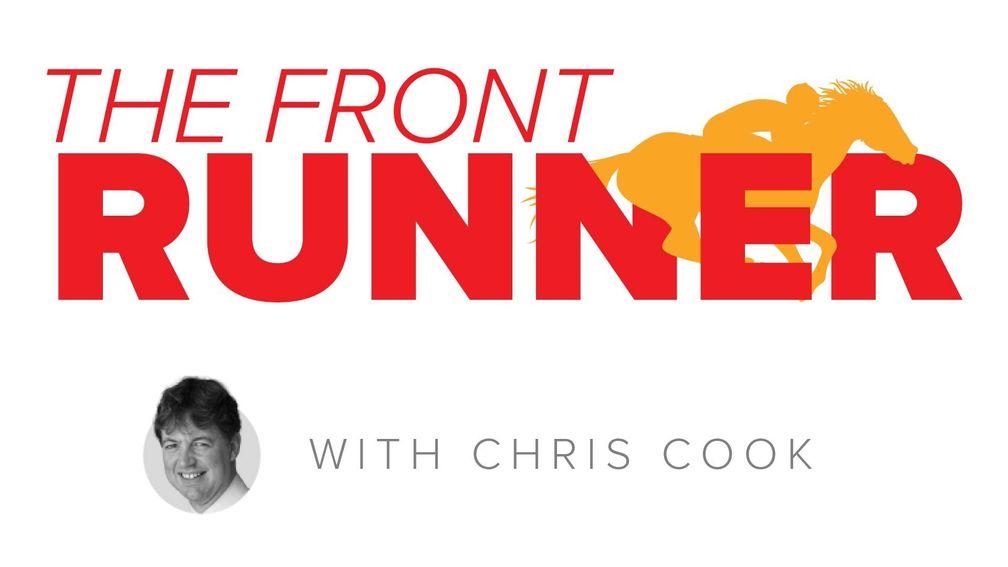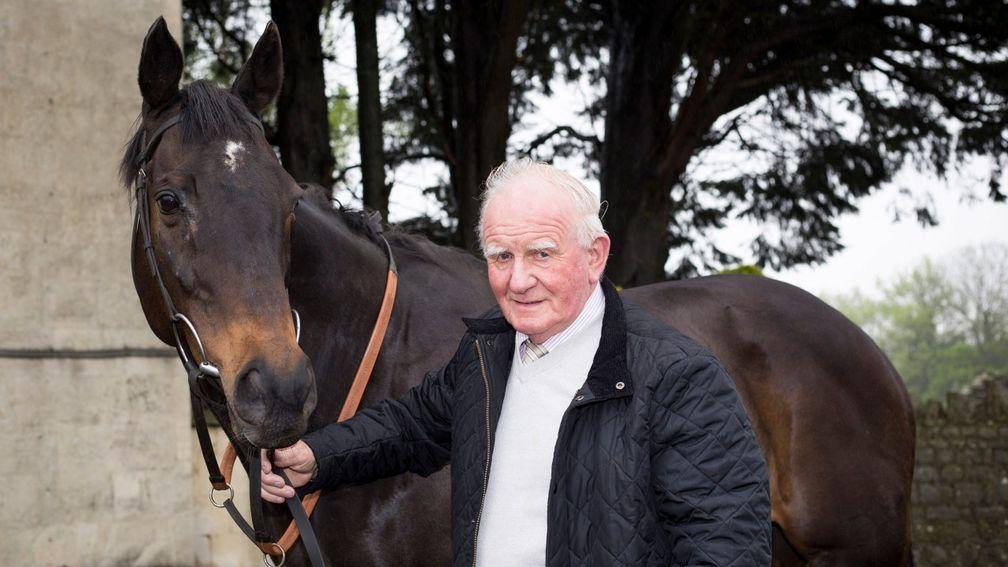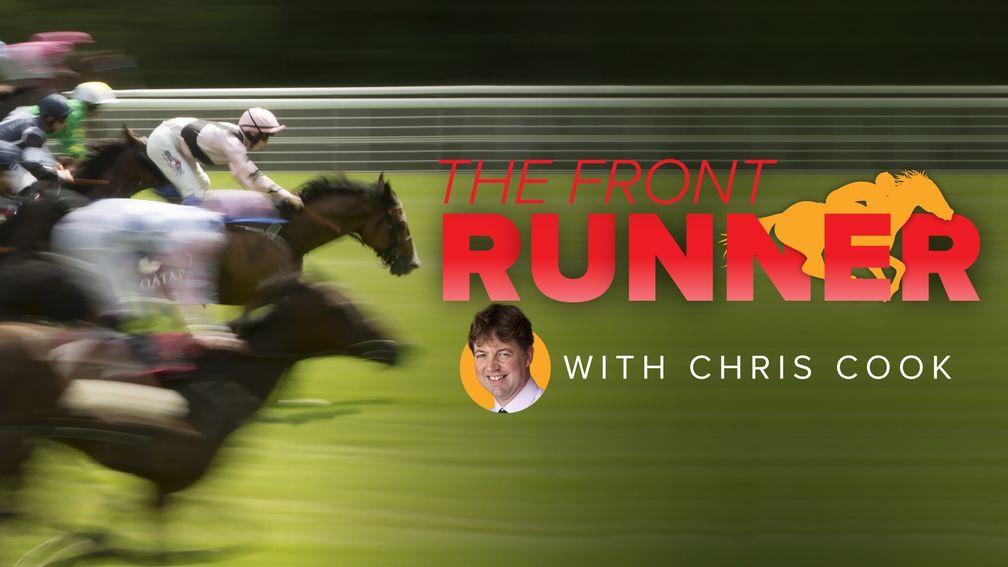Claiming races almost wiped out by 92 per cent decline - but what's the reason?

The Front Runner is our morning email exclusively for Members' Club Ultimate subscribers, written today by Chris Cook.
Subscribers can get more great insight, tips and racing chat from The Front Runner every Monday to Friday. Those who aren't yet signed up for The Front Runner should click here to sign up and start receiving emails immediately!
Not a Members' Club Ultimate subscriber? Click here to join today and also receive our Ultimate Daily emails plus our full range of fantastic website and newspaper content.

I've stumbled across some eyecatching statistics in my time but I can't remember many to compare with the astonishing collapse in numbers of claimers and sellers in British Flat racing. Figures provided by the BHA show that in 2010 there were 276 claimers and 237 sellers, making them almost a daily occurrence; last year, we had eight claimers and 31 sellers.
That's a 92 per cent decline in just 14 years. How amazing.
Conservationists define a species as endangered if its population declines by 70 per cent in a decade. I'm afraid the outlook for claimers these days is no brighter than that of the Black Rhino.
I can't say I noticed it happening, which probably makes me part of the problem. It seems a sad situation. Very obviously, there is nothing in the least glamorous about such races but they had their place and their own culture. When tipping was part of my daily job, I enjoyed them as a slightly different puzzle to the endless handicaps that have completely taken over our race-list.
I'm told the average field-size for last year's sellers and claimers was below eight. They are seen as uncompetitive and therefore unattractive to both racecourses and bookmakers. This is reckoned to be a large part of the reason for their decline.

But some people are sad to see them going, including the owner Alan Potts, whose letter to the Front Runner last week switched me on to the subject.
He pointed out that Up The Clarets, runner-up in a 5f seller for two-year-olds at Musselburgh on Derby day, had been claimed by Iain Jardine for a whopping £60,000. Clearly, some folk still believe you can find a useful animal in these races – and you'd think that would be good news for racecourses, since I understand they net a healthy commission if any horses change hands after one of their races.
"Over the years, I was a regular buyer from sellers and claimers," Potts wrote, "and the loss of these races makes it much harder for small owners like me to get hold of horses at a realistic price. I can't compete with the overseas buyers at the Newmarket sales."
He dug out his Raceform annual for 1986 and discovered that Epsom had staged a claimer on Derby day and another one on Oaks day that year. Evidently, we are living in much more snobbish times. I think modern officials would see no appeal in having such races on prestigious cards but it reminds me that Sir Peter O'Sullevan used to suggest that a selling race would be a worthwhile addition to the Cheltenham Festival.
"Given that the French and US race programs still feature plenty of claiming races, why have they fallen out of favour here?" Potts asked. It's a good question.
He reckons the decline in field size is closely linked to the decline in the number of such races. "You can't plan a program for your horse around one or two suitable races in a calendar year. Even a selling race has to be over the right distance for your horse and, of course, open to the age of your horse."
The selling and claiming prices set by race conditions have not kept up with the market value of horses, he adds. And another stumbling block may have been the increase in syndicate ownership; if you want to run in a seller or claimer, you all have to be prepared to part with the horse and it can be hard to get a large group on board with that idea.
But Potts can cite a list of big-name horses who changed hands in sellers or claimers on their way to the big time. The Tatling might be the most famous example, claimed for £15,000 by Milton Bradley when he won a Catterick claimer at the age of five. Two years later, he won the King's Stand at Royal Ascot.
He was beaten a head in the Nunthorpe and half a length in the Abbaye. His final prize-money haul was £687,763. He ran 154 times for Bradley. What a horse.
"No, we don't have enough sellers or claimers," says Gay Kelleway, who has won over 100 such races in her training career. "We used to have one every week. It's a good way of moving a horse on. At least you can have a bit of a bet, get the owners racing and that's what we're lacking."
Officials point to the development of online sales as a low-cost means of trading in racehorses but Potts and Kelleway have their suspicions of those. They like to see a horse before they buy. Kelleway has found that the experience of seeing a horse win a seller can fire up owners with enthusiasm to bid for it, whereas an online sale generally leaves them cold.
"It's always been a fun factor and I've won plenty. I've got pictures of horses I bought cheaply in England and took 'em over to France.
"You've got a chance with a poor-rated horse with a little bit of ability and you can always buy them back if you want. You go to France, there's two on the card!"

Anzio is a horse she remembers with affection. She got him for £5,000 out of a Lingfield claimer in February 1996, then won a Group 3 in Ireland with him four months later. The placed horses were trained by Jim Bolger and Aidan O'Brien.
"People like myself, David Evans, Stan Moore, the usual suspects, we used to put our lowly bought horses or homebred things in a seller and sort of handicap them ourselves – because, you know, the handicapper gets a bit ambitious. You run in a maiden and finish second to some well-bred George Boughey runner and you're snookered, aren't you?
"So I ran this horse, Lucky Lottery, and she was well beaten at Windsor. I thought, right, I'll run her in a claimer, I'll put her in for the lowest claim.
"Lo and behold, I've finished second to George Boughey, some horse that had run three times, finished second and third. What chance have you got?"
Read these next:

The Front Runner is our unmissable email newsletter available exclusively to Members' Club Ultimate subscribers. Chris Cook, the reigning Racing Writer of the Year, provides his take on the day's biggest stories and tips for the upcoming racing every morning from Monday to Friday. Not a Members' Club Ultimate subscriber? Click here to join today and also receive our Ultimate Daily emails plus our full range of fantastic website and newspaper content.
Published on inThe Front Runner
Last updated
- 'Fact To File has won the John Durkan!' - it's time to help Chris Cook pick the best racing commentary from 2024
- 'You can't be upset with a horse who cost £18,000 and has won 14 races'
- Three winners from four rides: what a time to be a conditional rider for the red-hot Venetia Williams
- The Front Runner: five great runnings of Newbury's Saturday chase including Denman and Many Clouds
- I'm looking forward to a more competitive Cheltenham Festival - but the markets suggest it will be tough for the British again
- 'Fact To File has won the John Durkan!' - it's time to help Chris Cook pick the best racing commentary from 2024
- 'You can't be upset with a horse who cost £18,000 and has won 14 races'
- Three winners from four rides: what a time to be a conditional rider for the red-hot Venetia Williams
- The Front Runner: five great runnings of Newbury's Saturday chase including Denman and Many Clouds
- I'm looking forward to a more competitive Cheltenham Festival - but the markets suggest it will be tough for the British again